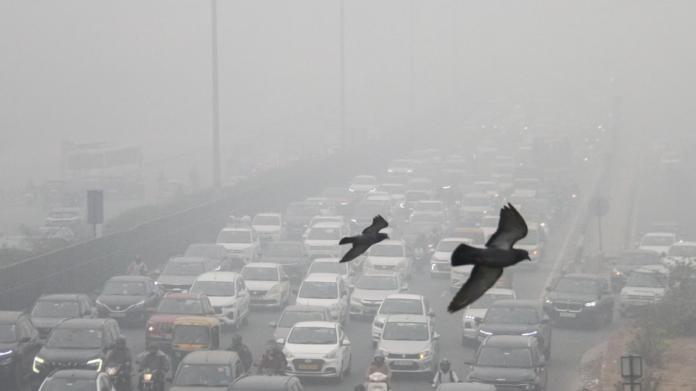A thick layer of fog enveloped Delhi on Tuesday morning, with the Air Quality Index (AQI) soaring to a hazardous 494, the highest of the season. The alarming levels of pollution forced schools, colleges, and universities, including Delhi University, to transition to online classes as a precautionary measure.
The AQI in the national capital remained in the ‘Severe Plus’ category, with several air monitoring stations, such as Anand Vihar, Ashok Vihar, Bawana, and Jahangirpuri, recording the maximum value of 500. According to the Central Pollution Control Board (CPCB), this marked the worst air quality of the season, posing severe health risks.
Authorities in the National Capital Region (NCR) have taken immediate steps to mitigate the impact on students. In Gurugram, all classes up to Grade 12 have been suspended until November 23 or further notice. Ghaziabad, where the AQI reached 450, has directed schools to move to online learning. Similarly, the Gautam Buddh Nagar district administration has ordered the suspension of all in-person classes.
Poor visibility due to the dense fog caused significant disruptions to travel. At least 22 trains were delayed, while nine others were cancelled. Airlines, including IndiGo, issued travel advisories for passengers traveling to and from Delhi, Amritsar, and Chandigarh, citing possible delays and cancellations due to the adverse weather conditions.
Delhi is currently under Stage 4 of the Graded Response Action Plan (GRAP), which enforces stringent measures to curb pollution. These include a complete ban on the entry of trucks into Delhi unless they transport essential goods or use clean fuel, such as CNG, LNG, or BS-VI diesel. All construction activities, including public infrastructure projects, have also been halted. Authorities are considering implementing the odd-even vehicle rationing system to further reduce emissions.
The Union Health Ministry has issued an advisory to states, urging them to strengthen health systems and raise awareness among vulnerable populations. The ministry has recommended district-level action plans to address the health impacts of air pollution and climate change.
With AQI levels in parts of Delhi crossing the 500-mark, the city faces an acute health and environmental crisis. Citizens have been advised to limit outdoor activities, wear protective masks, and stay updated on air quality. As Delhi grapples with this toxic haze, urgent collective action is needed to mitigate the effects of this pollution emergency.



